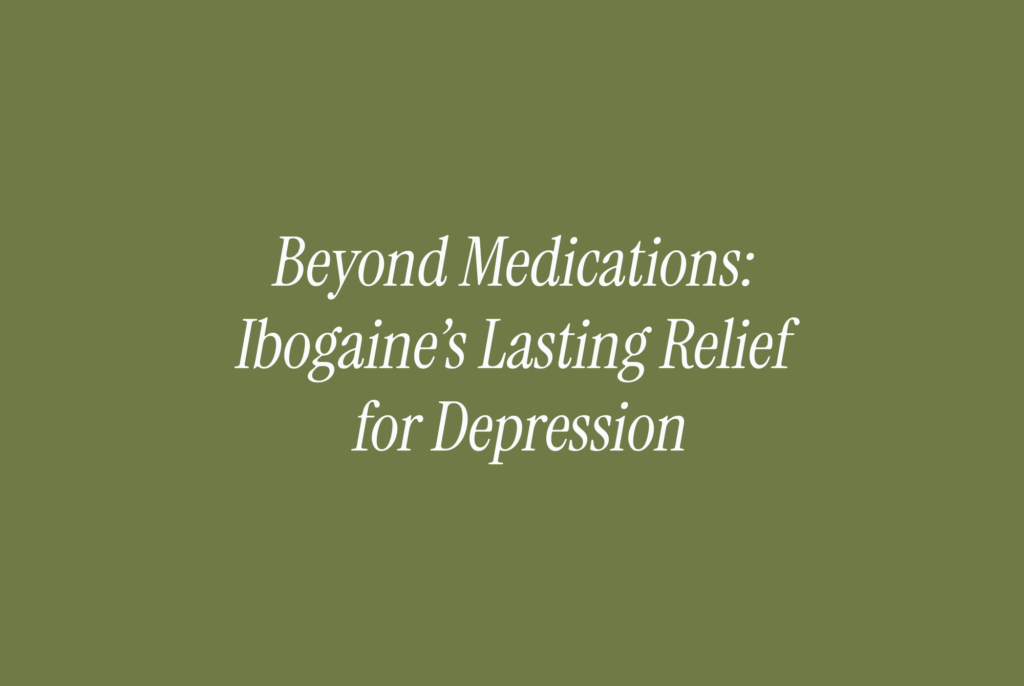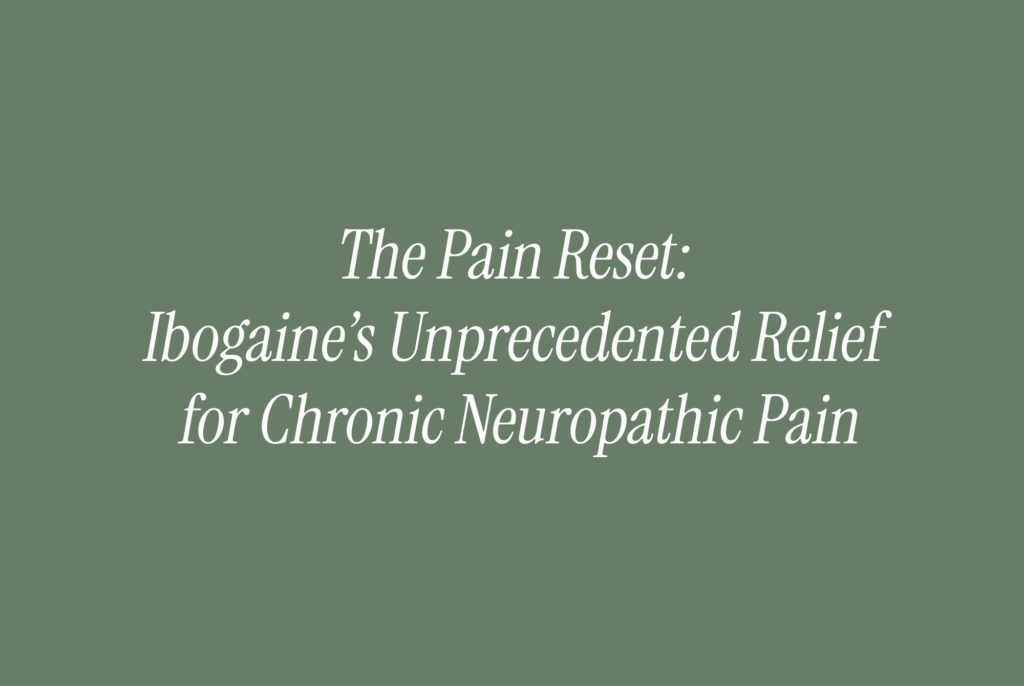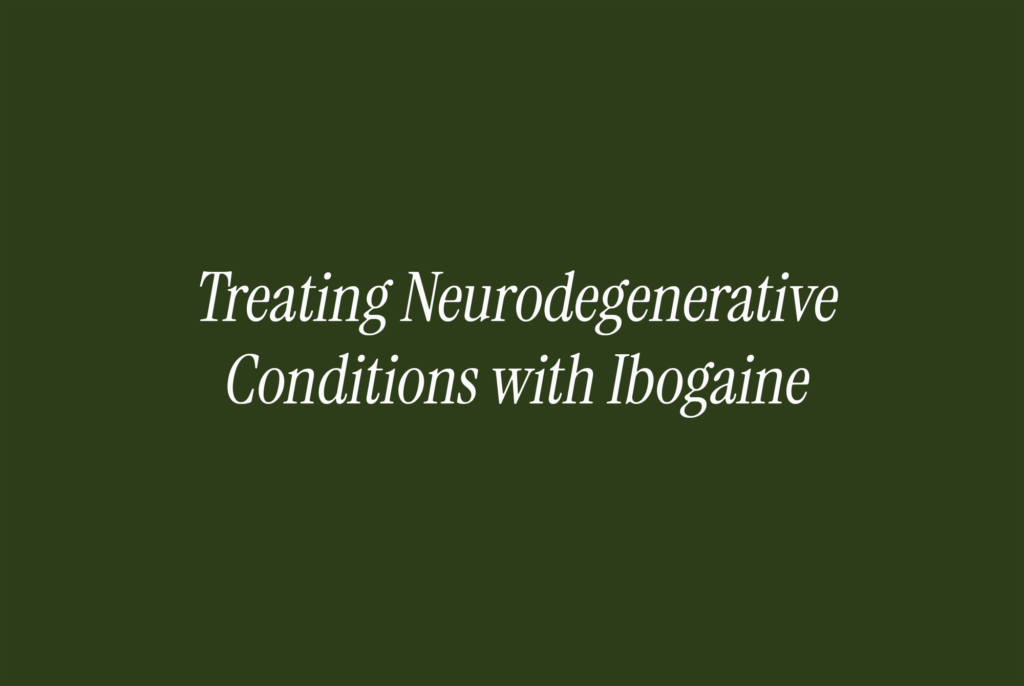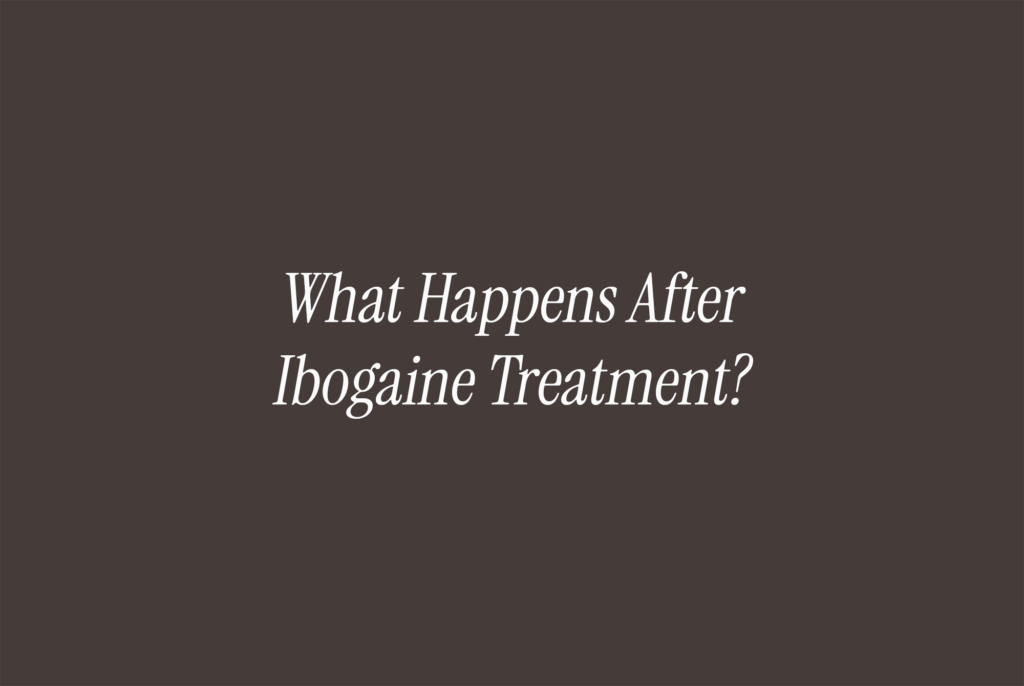You’ve tried medication after medication. You’ve attended countless therapy sessions. Yet, the heaviness never truly lifts. This is the painful reality for the millions of people living with treatment-resistant depression, a condition where conventional approaches fail to provide relief.
Standard antidepressants like SSRIs can be life-changing for some, but they leave a significant portion of individuals—up to a third—still searching for a solution. For them, the journey becomes a grueling cycle of trial and error, waiting weeks or months to see if a new pill works, all while managing debilitating side effects. Ibogaine represents a fundamentally different path. It isn’t another pill to take daily for years; it’s a powerful intervention designed to catalyze a deep neurological reset, addressing the root causes of depression rather than just masking its symptoms.
The Limitations of Conventional Treatment
The standard model for treating depression often involves a frustrating process of elimination. A patient starts an SSRI and must wait four to eight weeks to gauge its effectiveness. If it fails, the process repeats with another medication, sometimes for years. This “trial-and-error nightmare” leaves many feeling hopeless and exhausted.
Even when a medication provides some benefit, it often comes with a trade-off: weight gain, sexual dysfunction, or a sense of emotional numbness that dulls life’s highs as much as its lows. These treatments require daily maintenance, tethering a person to a pharmaceutical regimen indefinitely. What’s critically missing from this model is a focus on the underlying neurobiology and psychological wounds that drive depression. Instead of simply adjusting neurotransmitter levels, ibogaine offers a therapeutic alternative that works to heal the brain itself.
How Ibogaine Works Differently: A Multi-System Reset
Ibogaine’s profound antidepressant effects stem from its unique ability to engage multiple neurological systems at once—a comprehensive approach that no single conventional medication can replicate. This polypharmacology is the key to its rapid and lasting impact.
Dual Serotonin Action
Like an SSRI, ibogaine inhibits the reuptake of serotonin, increasing its availability in the brain and elevating mood. But it goes a crucial step further by also activating 5-HT2A receptors, the same pathway used by classic psychedelics. This combination produces not only mood stabilization but also profound psychological insight, creating an effect that has been compared to combining an antidepressant with intensive psychotherapy at a neurochemical level.
Rapid Antidepressant Effects via NMDA Receptors
Similar to ketamine, an FDA-approved treatment for severe depression, ibogaine is an NMDA receptor antagonist. This mechanism is known to produce powerful, rapid antidepressant effects, often within hours or days rather than weeks. However, unlike ketamine’s therapeutic model, which often requires repeated infusions to maintain benefits, ibogaine’s effects are initiated in a single treatment session and are sustained by its long-acting metabolite, noribogaine.
Targeting the Brain’s Stress System
Ibogaine also acts as a kappa-opioid receptor (KOR) antagonist. Activation of the KOR system is linked to feelings of dysphoria, stress, and anhedonia—the inability to feel pleasure that is a hallmark of depression. By blocking these receptors, ibogaine produces a natural antidepressant and anti-anxiety effect, targeting a pathway that is a major focus of next-generation depression research.
Stimulating the Brain’s Own Repair Mechanisms
Perhaps most revolutionary is ibogaine’s ability to promote neuroplasticity. Chronic depression is associated with neuronal atrophy and decreased levels of vital nerve growth factors. Ibogaine stimulates the production of GDNF and BDNF, proteins that protect existing neurons and encourage the growth of new connections. This suggests ibogaine doesn’t just manage symptoms; it facilitates the actual healing and rewiring of brain circuits damaged by depression.
The Evidence for Lasting Change
The clinical results are as compelling as the science. A landmark study from Stanford Medicine published in Nature Medicine investigated the effects of magnesium-ibogaine therapy on 30 Special Operations veterans, many of whom were struggling with severe, chronic depression alongside traumatic brain injury. The outcomes were remarkable: participants experienced an average 81% reduction in depression symptoms one month after treatment, and these significant improvements were sustained.
Subjective reports from patients echo these findings, describing a profound and immediate shift:
- “The crushing weight I’d carried for years finally lifted. It wasn’t a forced, artificial happiness, but a return to genuine feeling.”
- “My energy and motivation came back naturally, without any chemical push.”
- “For the first time in over a decade, I felt like myself again.”
The mystical or insightful nature of the experience itself appears to be a key factor in healing. The Stanford study found a strong correlation between the depth of the mystical experience and positive therapeutic outcomes, suggesting that psychological and spiritual transformation is intertwined with neurological repair.
Healing the Trauma at the Root of Depression
For many, depression is not a spontaneous chemical imbalance but a direct consequence of unprocessed trauma. Ibogaine’s oneirogenic, or dream-like, state provides a unique therapeutic window to address these root causes. During the experience, individuals can revisit and process painful memories from a detached, objective perspective, allowing for emotional catharsis and resolution.
This introspective journey allows for a “life review,” helping patients understand the patterns and events that have shaped their condition. As outlined in the Global Ibogaine Therapy Alliance’s clinical guidelines, this trauma processing is essential. By combining deep psychological work with powerful neurological repair, ibogaine facilitates a healing that is both profound and durable, offering lasting relief rather than temporary symptom suppression.
What to Expect from Treatment
A medically supervised ibogaine treatment is a carefully orchestrated process. It begins with a comprehensive medical screening to ensure patient safety, particularly regarding cardiac health, and an intention-setting phase to prepare psychologically. The treatment itself is an introspective journey lasting several hours, conducted under continuous medical monitoring.
In the immediate aftermath, many report a sense of clarity and a significant reduction in depressive thoughts. This ushers in a critical “neuroplastic window” where the brain is highly receptive to forming new, healthier patterns. This period is supported by intensive integration therapy, where the insights from the experience are translated into lasting changes in thinking, behavior, and lifestyle. While a single treatment can provide relief for months or even longer, this integration work is what solidifies the transformation.
For those ready to move beyond the cycle of medications and explore a path to lasting psychological healing, Iboga Wellness Institute is here to help. Contact our team at 800-604-7294 for a confidential consultation. We can discuss your unique mental health journey, answer your questions about our safety protocols, and determine if this breakthrough treatment is the right step for you.
Key Takeaways
- Ibogaine offers rapid antidepressant effects, often within days, by acting on multiple brain systems simultaneously—something no conventional medication can do.
- It promotes long-term healing by stimulating the production of neurotrophic factors like BDNF and GDNF, which help repair and rewire brain circuits damaged by chronic depression.
- The treatment facilitates deep psychological processing of root-cause trauma, leading to more durable and meaningful outcomes than simple symptom management.
- Clinical evidence, including a major Stanford study, shows that a single medically supervised treatment can produce dramatic and sustained reductions in depression symptoms.


















